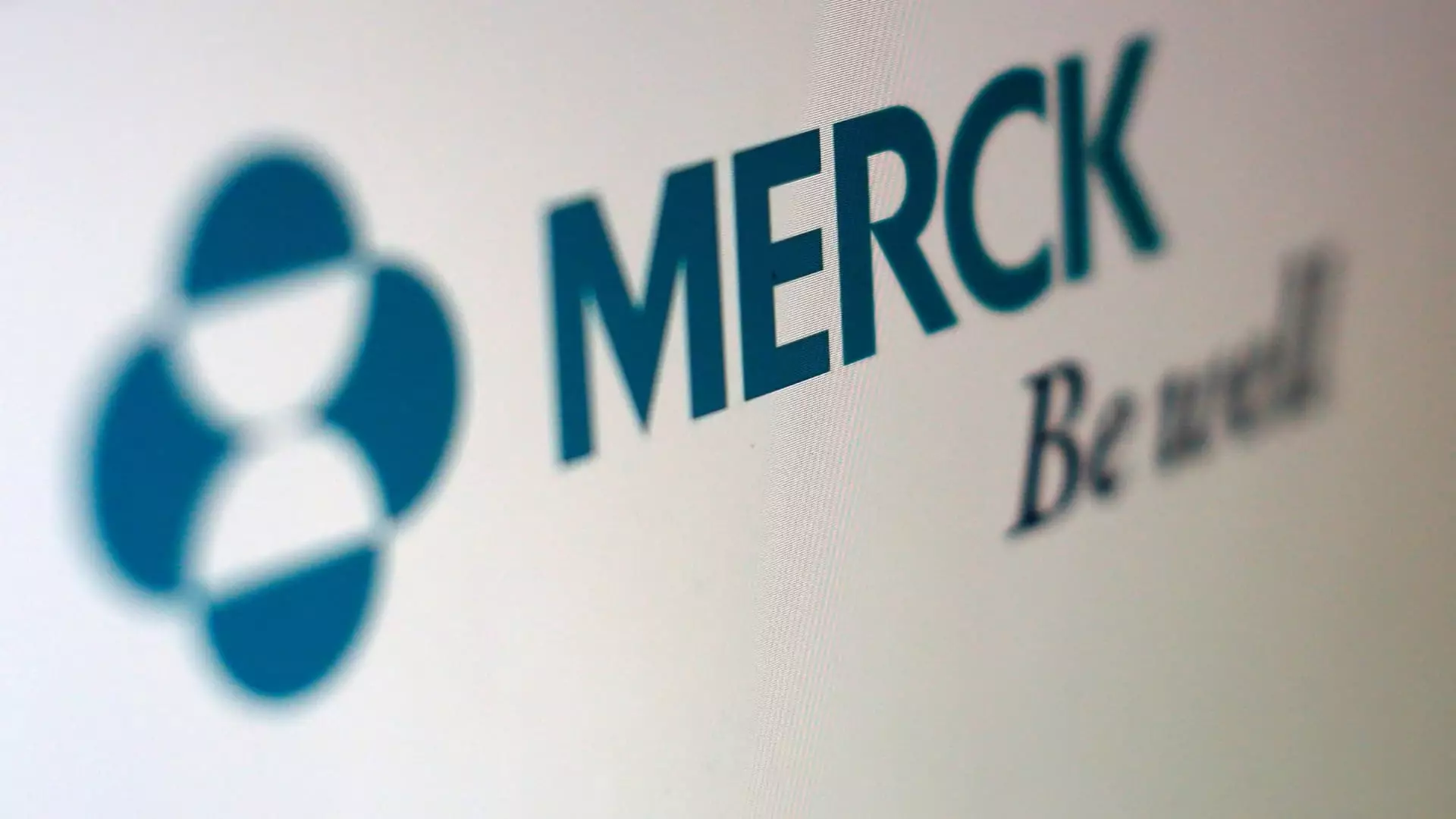The recent approval of Merck’s innovative treatment for respiratory syncytial virus (RSV) injects a refreshing sense of urgency into the fight against a virus that has long plagued the most vulnerable among us—infants and the elderly. Marketed as Enflonsia, this new shot represents more than just a medical advancement; it’s a beacon of hope for families grappling with the stark reality of RSV’s impact, which takes countless lives each year. However, it’s crucial to recognize that this approval is not merely a victory for Merck; it also catapults us into a compelling narrative about the fierce competition within the pharmaceutical industry.
The approval comes at a pivotal moment, coinciding with the onset of the RSV season that typically ranges from fall to spring. This new option allows pediatricians and families to breathe a little easier, confronting a virus that necessitates thousands of hospitalizations globally. Dr. Dean Li, president of Merck Research Laboratories, underscores this urgency by emphasizing the company’s commitment to ensuring that Enflonsia is readily accessible before the peak RSV season. Certainly, at its core, Merck’s mission aligns with a center-left liberal ethos—putting public health above profits, focusing on reducing the burden of illness that afflicts families and healthcare systems alike.
The Competitive Landscape: Merck vs. Sanofi and AstraZeneca
Despite the optimism surrounding Merck’s launch, it is crucial to examine the competitive dynamics at play. Sanofi and AstraZeneca have already rolled out their own RSV treatment, Beyfortus, which recently faced supply shortages highlighting a unique tension within the healthcare market. This competition, while potentially beneficial for consumers, also brings into question the role of big pharmaceutical companies in prioritizing business strategies over patient needs. The pharmaceutical industry often positions itself as a lifeline for public health, yet the extreme measures taken—such as increasing supply in response to high demand—can often smack of opportunism rather than altruism.
Despite both treatments being classified as preventative monoclonal antibodies, the nuanced differences in their mechanisms can complicate choice for parents and healthcare professionals. Merck’s Enflonsia is appealing because it can be administered to infants regardless of their weight. This feature simplifies the often convoluted landscape of pediatric medicine. In contrast, Beyfortus requires careful dosage calculations based on body weight, adding a layer of complexity that could result in logistical challenges at hospitals and clinics.
Broader Implications for Public Health
As we analyze the implications of this new treatment, it’s hard not to ponder the broader context of vaccine development and approval in the United States. Currently, conventional vaccines for RSV have been approved for adults and pregnant women, yet the FDA’s recent pause on testing RSV shots for young children due to safety concerns casts a long shadow on the immediate future of RSV prevention. Why is there such inconsistency in who receives protection against this deadly virus? In a society that values equity in healthcare, this question demands urgent attention.
Moreover, we must ask ourselves about the stability of supply chains that are vital in bringing these life-saving treatments to the families who need them most. As companies like Sanofi strive to crank up production for Beyfortus amid soaring demands, the real question remains whether this rush towards profit will compromise safety and effectiveness. With all companies eagerly anticipating the upcoming CDC advisory meeting, the stakes have never been higher.
A Future Worth Fighting For
While the emergence of Enflonsia is undoubtedly a step toward enhancing public health, it also serves as a potent reminder of the pharmaceutical industry’s dual capacity for innovation and exploitation. The competition between Merck and its rivals spells out a broader narrative about how healthcare, especially for our most vulnerable populations, can sometimes become overshadowed by business interests.
Ultimately, it’s a call to action—one that urges us to keep vigilance over pharmaceutical practices while acknowledging the advancements that benefit society. The approval of Enflonsia may indeed herald a new chapter in the fight against RSV, but let us remain critical; we must advocate for a healthcare system that ensures availability, equity, and optimal patient care for all.

